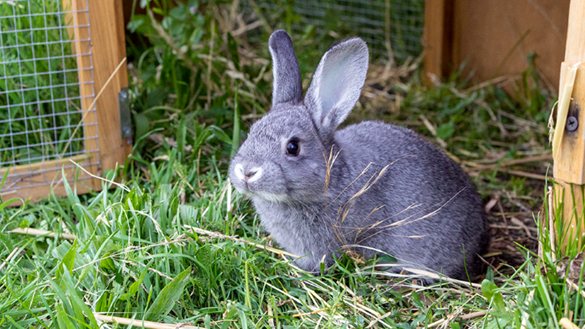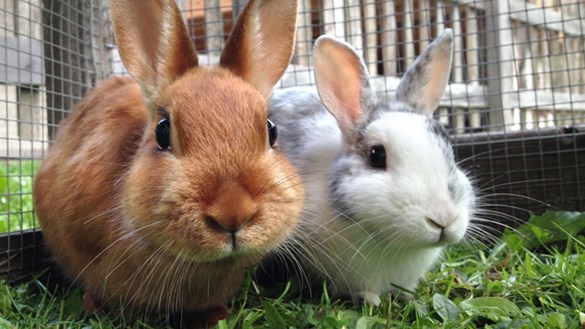Flea Advice For Rabbits
Rabbits are wonderful pets, but whether they live outside or inside, they are still susceptible to pesky fleas. Read about the signs and symptoms of fleas on rabbits and how you can prevent them, and treat them.
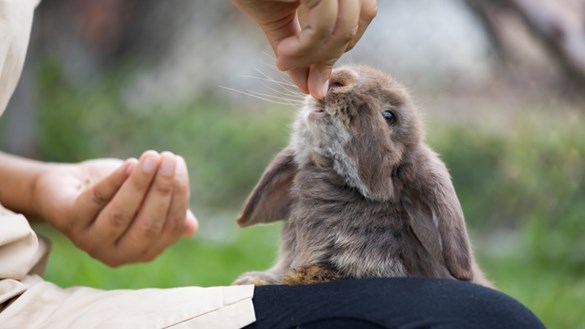
Fleas on rabbits
Rabbits make wonderful family pets but just like dogs and cats they can suffer from fleas, and the last thing you want is to find these wingless little creatures jumping around your home. Not only an itchy annoyance, they also feed on blood to survive and aren’t fussy about where it comes from- definitely not what you want in your home. If your rabbit gets fleas then there’s every chance it could spread to other pets and even your family members if left untreated.
Thankfully, although it’s not the nicest thing to deal with, you can get rid of them relatively easily and keep your rabbit flea free.
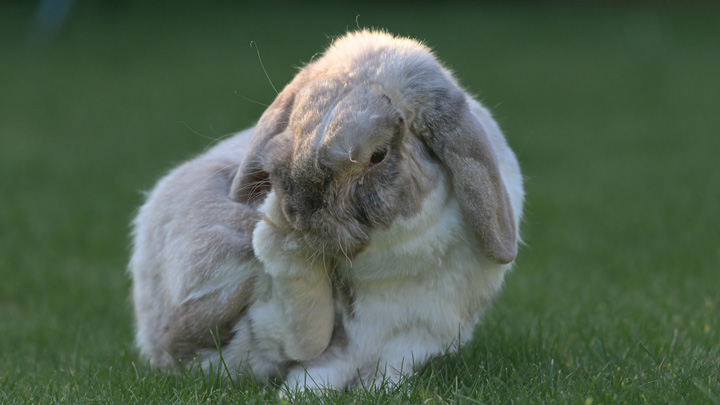 Signs and symptoms of fleas in rabbits
Signs and symptoms of fleas in rabbits
Some rabbits might not show any signs while others can exhibit some or all the following:
- Biting their skin – If you spot your bunny nibbling at its fur a lot or itching, there’s a good chance it might have fleas. You may even be itching yourself or notice raised red bumps on your skin, especially if your rabbit lives indoors
- Spotting live fleas – Fleas are small and fast but if you part your rabbit’s fur and stroke it backwards around the neck and spine you might see one or two
- Anaemia - If the infestation is severe or been present for a while your rabbit could lose so much blood it becomes anaemic. Signs of anaemia include weakness and pale gums
- Flea Dirt – Flea dirt – a mixture of flea faeces and dried blood – is easier to see on your rabbit’s skin than eggs which are white and microscopic. If you’re unsure if it’s flea dirt or garden dirt try the wet paper towel test. Run a wet paper towel over the area, if the dirt turns reddish brown, then your bunny has probably got an infestation
- Hair loss and scaly skin – You might spot hair loss or patches of scaly skin which can make their coat look ragged
The difference between mites and fleas
Mites and fleas are often lumped together because many people think they’re similar bugs that infest our pets and homes but they’re completely unrelated. Mites are arachnids while fleas are insects and, unlike fleas which tend to jump on and off, mites will live on rabbits’ skin full-time.
Many mites don’t infect pets because they mostly feed on plants or dead skin cells although there are some parasitic ones that will bite. Your rabbit could be suffering from ear mites if you see them scratching their ears or shaking their head. The most common mites are fur mites (Cheyletiella) which present as a build-up of dandruff around the neck and back. Harvest mites are mainly seen in the autumn and are most common in rabbits living in rural areas. They look like small bright red or orange dots clustered around the eyes, head, feet or belly.
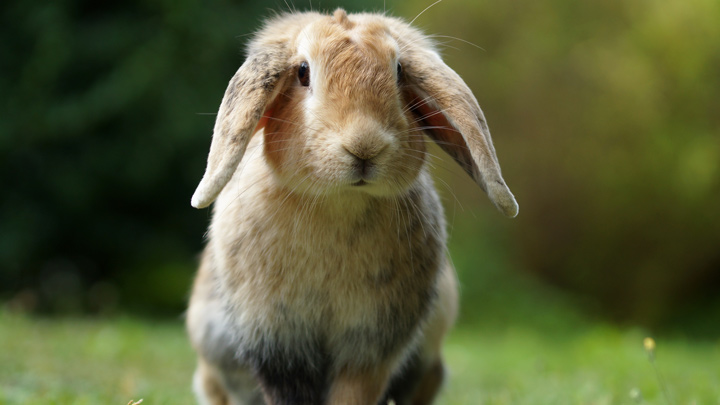
What’s the best way to treat my rabbit for fleas?
There is a rabbit-specific treatment for fleas which your vet can recommend, but because fleas can also infect dogs and cats, you will need to treat all pets in your household. Your vet will be able to advise you on the best product to use for your pet.
Avoid flea dips, flea baths or powders – not only are baths very stressful for rabbits, the chemicals used are often poisonous to them.
Your vet can advise on the treatment and don’t forget, if you have other pets in your home you’ll need to treat them too.
Could my rabbit be allergic to fleas or mites?
Just like humans, some rabbits suffer from allergies. If they’re allergic to mites or fleas, you might see excessive scratching leading to lesions and infections on the skin. Treating the infestation should get rid of any issues an allergy causes and your vet can treat for any additional infections.
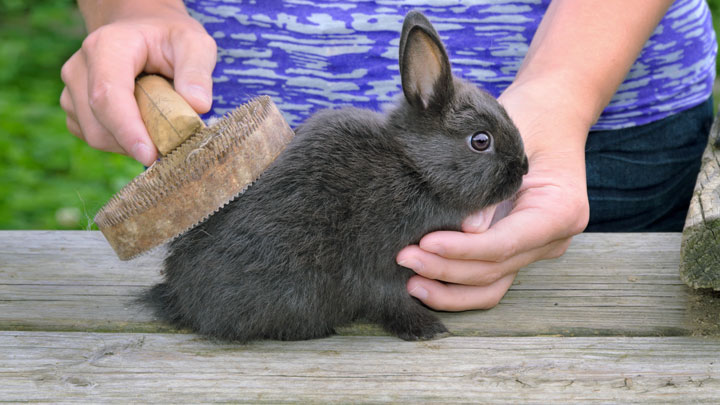
How do rabbits get fleas?
Rabbits can get fleas all year round. They’re more common in the summer as the weather warms up but that doesn’t mean your bunny won’t be harbouring some uninvited guests during the winter months too.
If your rabbit is kept outdoors there is less chance of them getting fleas in the cooler months but if they’re a house pet, kept in a nice warm home, then there’s a chance of fleas all year round.
Can indoor rabbits get fleas?
Whether your rabbit lives outdoors or is a house pet, there’s always a risk of flea infestation. Although rabbits are less susceptible to fleas than cats and dogs, if there are any in your home, then they could be at risk. Indoor pets are more likely to get fleas at all times of the year because they live in an artificially heated environment.
The best treatment is prevention, so make sure you get your rabbit’s flea treatment from your local vet. If you suspect your rabbit may have fleas, we’d recommend contacting your vet.


